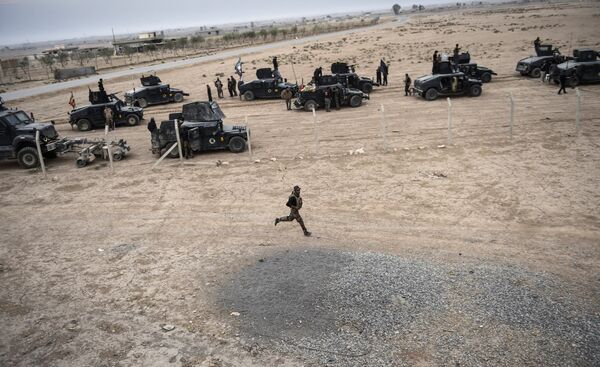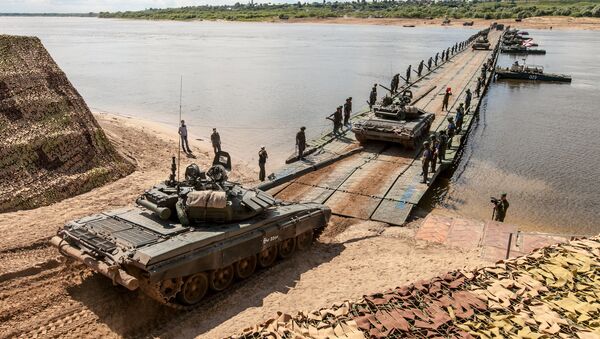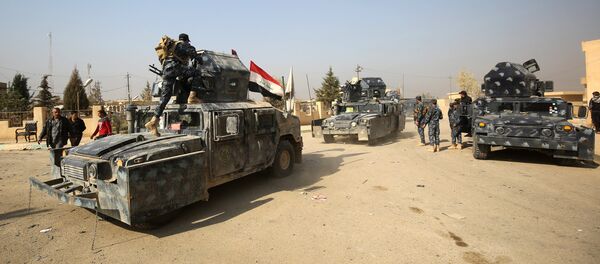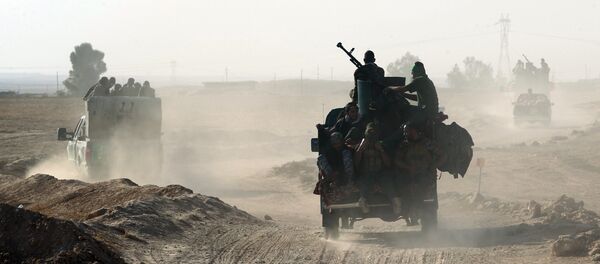Iraqi forces backed by the US-led coalition launched the operation to reclaim Mosul from the Daesh (ISIL/ISIS) terror group on October 17.
Mosul, the second largest city in Iraqi, as well as a number of other northern and western Iraqi cities and towns were seized in 2014 during a Daesh offensive.
Late last week, engineering teams managed to complete several pontoon bridges over the Tigris River in order to transport the Iraqi army's heavy equipment as well as that of the First American Infantry Division units who were recently deployed to Iraq to support the Mosul operation, according to Izvestia.

Crossing the Tigris River means that the Iraqi troops will now be able to advance on Mosul's western areas, while the American generals, who are in fact at the helm of the Mosul operation, will deal with their favorite hammer-and-anvil tactics.
Viktor Murakhovsky, chief editor of the Russian magazine Arsenal Otechestva (Armory of the Motherland), told Izvestia that the Soviet pontoon parks remain popular all across the world.
All you need for their installation are powerful trucks and several tug-boats, according to him.
"These fool-proof pontoon bridges can be installed by staff engineering teams on their own. Unlike the US-made pontoon parks which require cranes and other equipment, our pontoon bridges can be completed with the help of a crow-bar and a simple set of tools," Murakhovsky said.
He added that Iraqi special operations troops had killed about 1,000 jihadists since the start of the Mosul operation.
There is no concrete timeframe for liberation of Mosul from Daesh, but it will not take a long time, he said.




